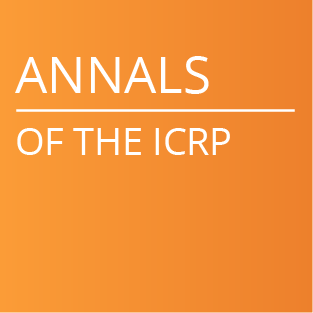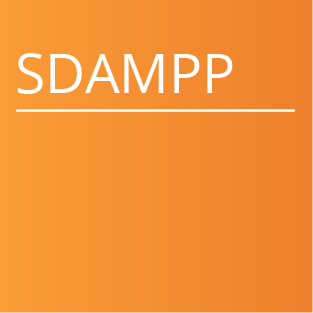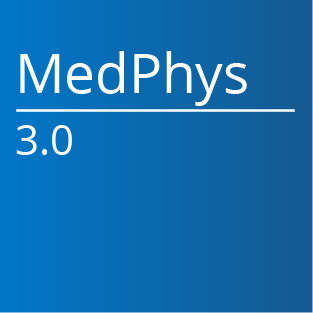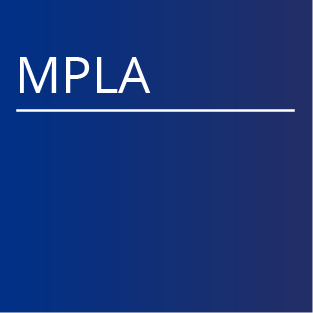| This Policy is No Longer Active. | |||
| Policy number | Policy name | Policy date | Sunset date |
|---|---|---|---|
| PP 31-A | AAPM Policy Against Harassment and Disruptive Behavior at Meetings | 4/10/2018 | 11/27/2018 |
| Section No section assigned |
|||
| Policy source | |||
| Policy text | |||
|
PURPOSE AAPM is committed to providing a safe and productive meeting environment that fosters open dialogue and the exchange of professional and scientific ideas, promotes equal opportunities and treatment for all participants, and is free of harassment and discrimination. All participants are expected to treat others with respect and consideration and to follow venue rules. All meeting attendees are expected to uphold standards of scientific integrity and professional ethics, as described in the AAPM Code of Ethics. AAPM recognizes that there are areas of science and professional practice that are controversial. An AAPM meeting can serve as an effective forum to consider and debate science and profession-relevant viewpoints in an orderly, respectful, and fair manner. POLICY STATEMENTAAPM prohibits any form of harassment, sexual or otherwise, as well as other disruptive behavior at its meetings and events. SCOPEThe policy herein applies to all members, attendees, speakers, exhibitors, staff, volunteers, and guests at an AAPM meeting including the Annual Meeting, Spring Clinical Meeting, and Summer School and other AAPM-sponsored events, such as committee meetings, council retreats, and social activities. In this context, the policy applies to rooms where AAPM-sponsored educational or scientific sessions or AAPM committee meetings are being conducted, including events held at AAPM Headquarters. It also applies to other areas within the meeting venue controlled by the AAPM such as the registration area, poster halls, and exhibit space. And it applies to events held in conjunction with the meeting and controlled by AAPM such as the AAPM Night Out venue or AAPM-sponsored dinners. DEFINITIONSBehavior that is welcome or acceptable to one person may be unwelcome or offensive to another. Consequently, individuals must use discretion to ensure that their words and actions communicate respect for others. This is particularly important for those in positions of authority since individuals with lower rank or status may be reluctant to express their objections or discomfort regarding unwelcome behavior. Harassment intended in a joking manner still constitutes unacceptable behavior. Harassment resulting in fear for one’s safety and well-being is a criminal offense and therefore beyond the scope of this policy. The forms of conduct covered in this policy are defined below.
During the Annual Meeting, the Response Team will be comprised of member(s) of AAPM leadership, member(s) of AAPM Headquarters’ Management Team, and the chair of the Ethics Committee (if present). The response team should be limited in size, consisting of two to five members. During other meetings, the Response Team will be comprised of the program director and a member of the AAPM Headquarters’ Management Team present at the event. The Response Team may be assisted by a consulting group that specializes in handling instances of harassment and disruptive behavior. The primary concern of the Response Team is to ensure the safety of the attendees and that continued incidents of harassment/disruptive behavior do not occur at the meeting. Complainant: Anyone filing an alleged harassment or disruptive behavior complaint. Witness: Anyone who observed an incident of alleged harassment or disruptive behavior. Individual Implicated / Respondent: The individual who allegedly caused the harassment or disruptive behavior. PROCEDURE Prior to the MeetingAll AAPM meeting participants shall affirm their (1) acknowledgment of and (2) agreement to abide by this harassment policy during the registration process prior to the meeting. Committee members shall agree to abide by the harassment policy during their annual attestation. The Response Team shall be selected prior to the meeting. Members of the Response Team, session moderators, and committee chairs should be provided training prior to the meeting to identify potential harassment and disruptive behavior. Members of the Response Team shall be trained to process a complaint and either take immediate action or forward the complaint to the appropriate entity, such as the AAPM Ethics Committee or local authorities. During the MeetingReporting Harassment Any individual (Complainant) covered by this policy who believes that he or she has been subjected to harassment may file a complaint during the meeting in any of the following ways: (1) in person by contacting AAPM Headquarters, any AAPM staff member, any AAPM Board member, the committee chair, the session moderator, or the course (program) director, or (2) using an online form or email. The complaint may be received by a consulting group working with the AAPM. The complaint will then be referred to the Response Team. Session moderators should report disruptive behavior observed or handled during their session promptly to the Response Team. This report should include pertinent information such as the name of the individuals involved, type of incident, location, and date of the incident. A sample reporting form is shown in Appendix A. Responding to HarassmentAppropriate action will be based on a determination of circumstances. The Response Team shall determine if immediate action is required and/or if a formal complaint will be filed with the appropriate authority within or beyond AAPM. In the event a Complainant has already filed a formal complaint with a legal authority or law enforcement, the Response Team will cooperate any resulting investigation. The Response Team may choose to arrange a meeting with the alleged harasser/disrupter to resolve the issue during the meeting. The Response Team may refer the incident to the Ethics Committee to be handled after the meeting has concluded. For harassment resulting in fear for one’s safety and well-being, it may be necessary to contact local law enforcement authorities and/or to complete a security report if the incident takes place in a convention center or hotel. The Response Team will facilitate the arrangement of interim safety measures as appropriate pending the outcome of the complaint and investigation. Throughout the investigation, an individual providing support may accompany a Complainant or Respondent. AAPM reserves the right to remove an individual from any AAPM meeting without warning or refund and/or to prohibit attendance at future AAPM meetings. After the MeetingA Complainant may report any alleged harassment after the meeting by online form, email, or phone. AAPM may engage with a consulting group to establish the procedures and methods to accept these complaints. Incidents reported during the meeting may subsequently be referred to the Ethics Committee or the Executive Committee of the Board after the meeting. There is a well-established complaint procedure in place with a clear “due process” procedure, as described in AAPM’s Code of Ethics. The Complainant may choose to file a formal complaint. AAPM reserves the right not to proceed with an investigation following an allegation of inappropriate behavior by an individual if it is considered that there are insufficient grounds or evidence to do so. An appeals process for either the Complainant or the Respondent to either the Ethics Committee (members) or the Executive Committee (non-members) of the Board should be established. When appropriate, appeals to the Ethics Committee may be escalated to the Executive Committee. The Ethics Committee or the Executive Committee shall notify the individuals involved in writing of the findings and the action to be taken. |
|||
| Policy version history | ||||
| Policy number | Policy name | Policy date | Sunset date | Active? |
|---|---|---|---|---|
| PP 31-A | AAPM Policy Against Harassment and Disruptive Behavior at Meetings | 4/10/2018 | 11/27/2018 | Inactive |
| PP 31-B | AAPM Policy Against Harassment and Disruptive Behavior at Meetings | 11/28/2018 | 12/31/2023 | Inactive |
| PP 31-C | AAPM Code of Conduct at Meetings and Social Events | 4/7/2020 | 12/31/2023 | Inactive |
| AP 133-A | AAPM Code of Conduct at Meetings and Social Events | 4/7/2020 | 12/31/2028 | Active |



















